
Best Fertilizer For Thompson Seedless Grapes?
Fertilizing grapes can increase annual yields, enhance grape and wine quality, and improve soil's biological and chemical properties. As a deep-rooted, perennial crop, grapes remove a significant amount of nutrients from the soil and depend on adequate nutrient management to account for what is lost. Factors influencing nutrient removal are.

The Best Organic Fertilizer for Grape Plants / PT.Natural Nusantara / +6283840740383 YouTube
Mulching and watering grapes. Using mulch and proper watering (if necessary) helps to produce healthy grapes.. Fertilizing grapes. Soil pH- 5.8-6.5 Year 1- fertilize with 0.30 ounces of nitrogen (N) per plant at planting Year 2- fertilize with 0.30 ounces of nitrogen (N) per plant at flowering Year 3- fertilize with 0.40 ounces of nitrogen (N) per plant at flowering

BAMBOO ORGANIC FERTILIZER FOR GRAPES BBP NO.1 SEEK (China Manufacturer) Fertilizer
Fertilizer is measured by its content of nitrogen, phosphorus and potassium, or NPK. For grapes, a ratio of 10-10-10 is adequate. This means in a 100-pound bag of fertilizer, there's 10 pounds each of the three main ingredients. The other 70 pounds is filler used to help disperse the other nutrients evenly and in the proper amounts.
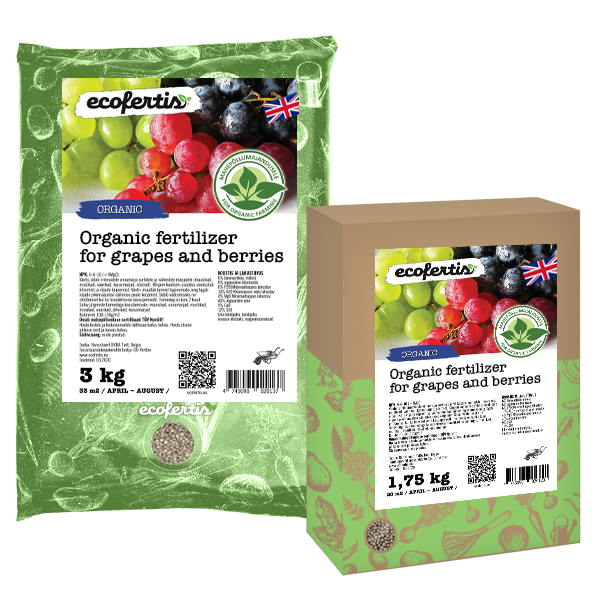
Organic fertilizer for grapes and berries Ecofertis.eu
Best offers for your Garden - https://amzn.to/2InnD0w-----What Type of Fertilizer to Use on Grape Vines?. Grape vines are easy to grow in the home.

MasterAgro Complex Mineral WaterSoluble Fertilizer For Grapes 25 g Per 10 L eBay
The fertilizer requirements of bunch grapes can vary widely depending upon vine vigor and crop size. This makes it difficult to give generalized recommendations. Young vines may not need any fertilizer for the first two to three years. Apply only when vines appear to need it and only in early spring. Excess nitrogen can cause plants to become.
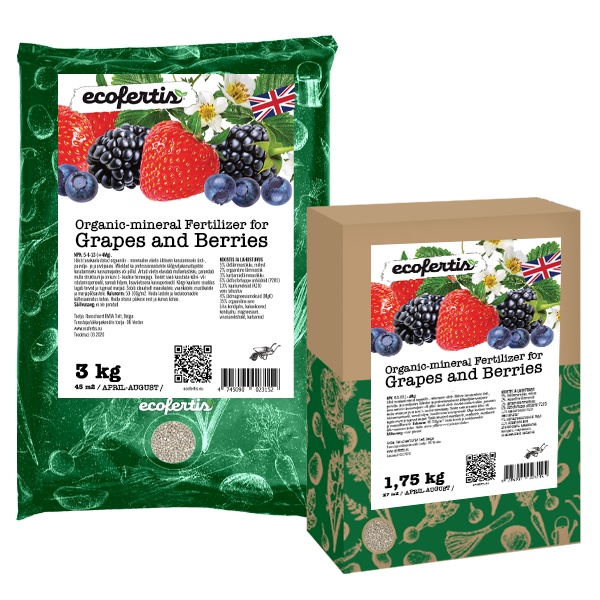
Organicmineral Fertilizer for Grapes and Berries Ecofertis.eu
Fertilizing grapes can increase annual yields, enhance grape and wine quality, and improve soil's biological and chemical properties. As a deep-rooted, perennial crop, grapes remove a significant amount of nutrients from the soil and depend on adequate nutrient management to account for what is lost. Factors influencing nutrient removal are.

Sansar Green Grapes Magic Mixture Best Fertilizer for Grapes Plants YouTube
Fertilizing Grapes. It's important that you don't fertilize your grapevines in the first year unless you have issues with your soil. In the second year, fertilize lightly to encourage the next year of growth. Pruning Grapevines. Pruning is the most important part of caring for grapevines. Grapes grow fruit on shoots growing from the one.
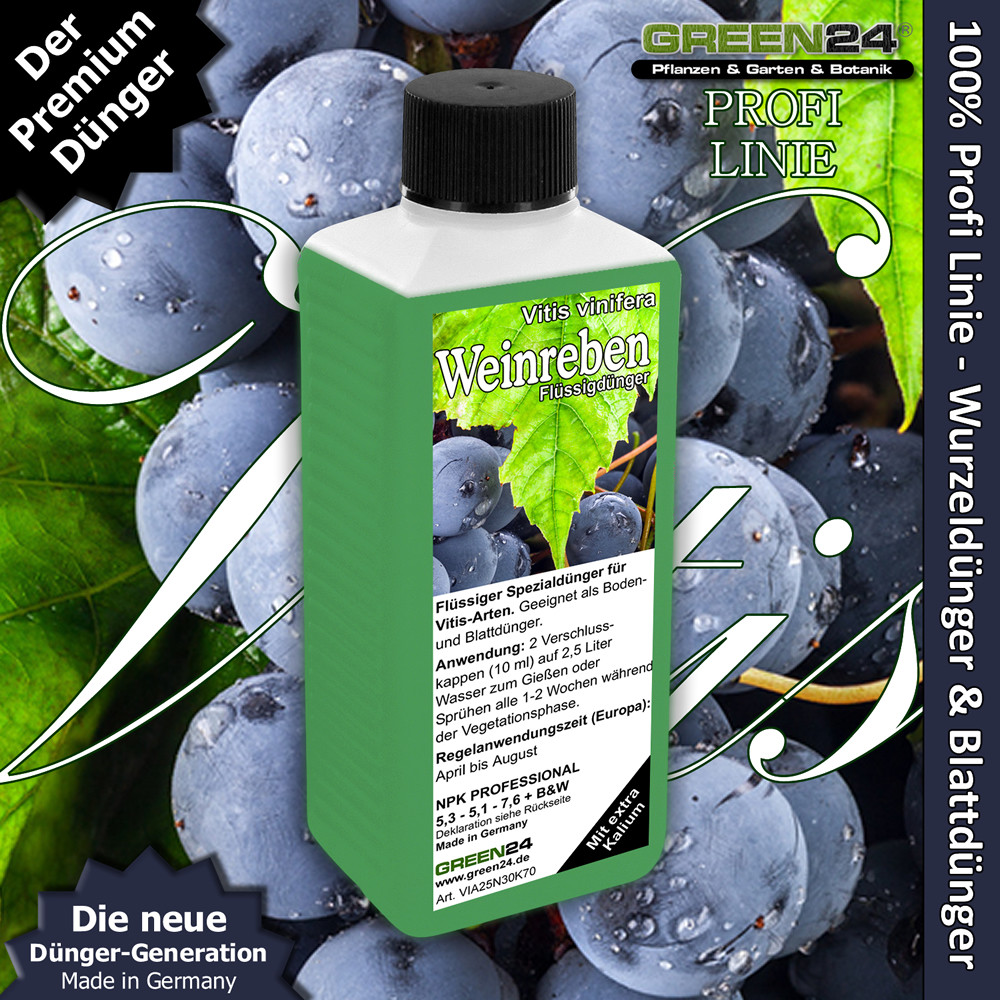
Vitis vinifera Liquid Fertilizer NPK Common Grape Vine Food / Feed 250ml
Improving a grapevine's ability to process and transport sugars throughout the plant to the fruit is key to improving the size, appearance, crispness, taste and growth of the grapes. AgroLiquid grape fertilizers deliver the right balance of nutrition to bolster the health of the vine facilitating the transport of sugar to the grapes.
Fertiliser Application Strategies in Wine Grape Yara UK
On grapevines, it can be used alone or in conjunction with another nitrogen source at the start of spring. How To Use: Apply up to 1 cup of fertilizer per plant. Gently work into the soil and water the area thoroughly. 5. Espoma Berry-Tone Plant Food 4-3-4.
Sansar Green Grapes Fertilizer 1 kg 5 kgs Buy Sansar Green Grapes Fertilizer 1 kg 5 kgs
Fertilizer is the most expensive part of growing grapes, so it is important to choose a fertilizer that will provide the best results for your grapes. A good fertilizer for grapes is one that contains a high level of nitrogen, such as a nitrogen-phosphorus fertilizer. This fertilizer will help the grapevine grow faster and produce more grapes.
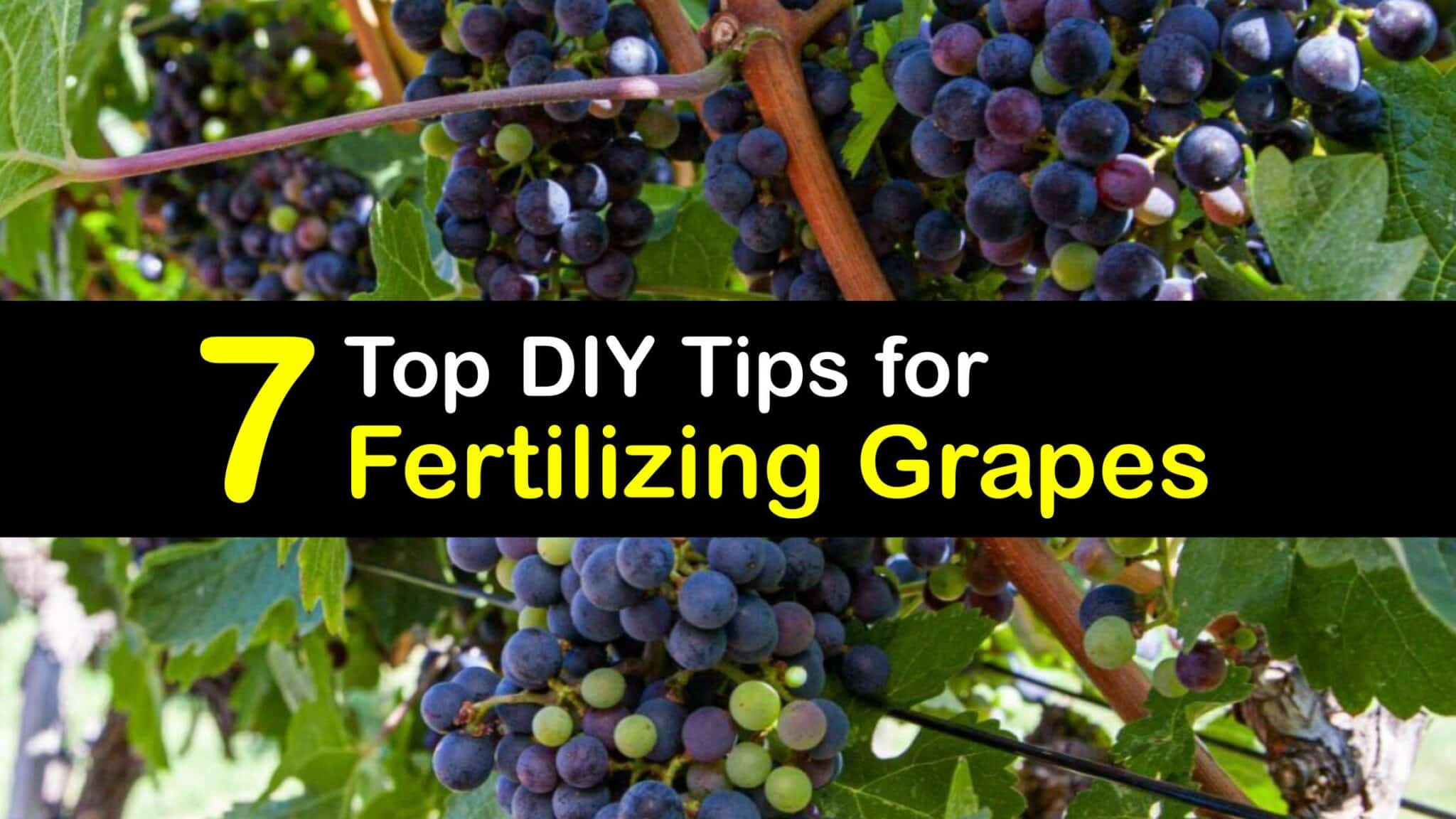
Feed Your Grapevines Easy Homemade Grape Fertilizers
Stick to January or February if going for manure to feed the grapevines. Add around 5-10 pounds of rabbit or poultry manure, or go for pounds of cow or steer manure for each vine. Urea, ammonium nitrate, and ammonium sulfate are some nitrogen-rich fertilizers that work wonders for grapevines. These should be added when the grapes are about one.
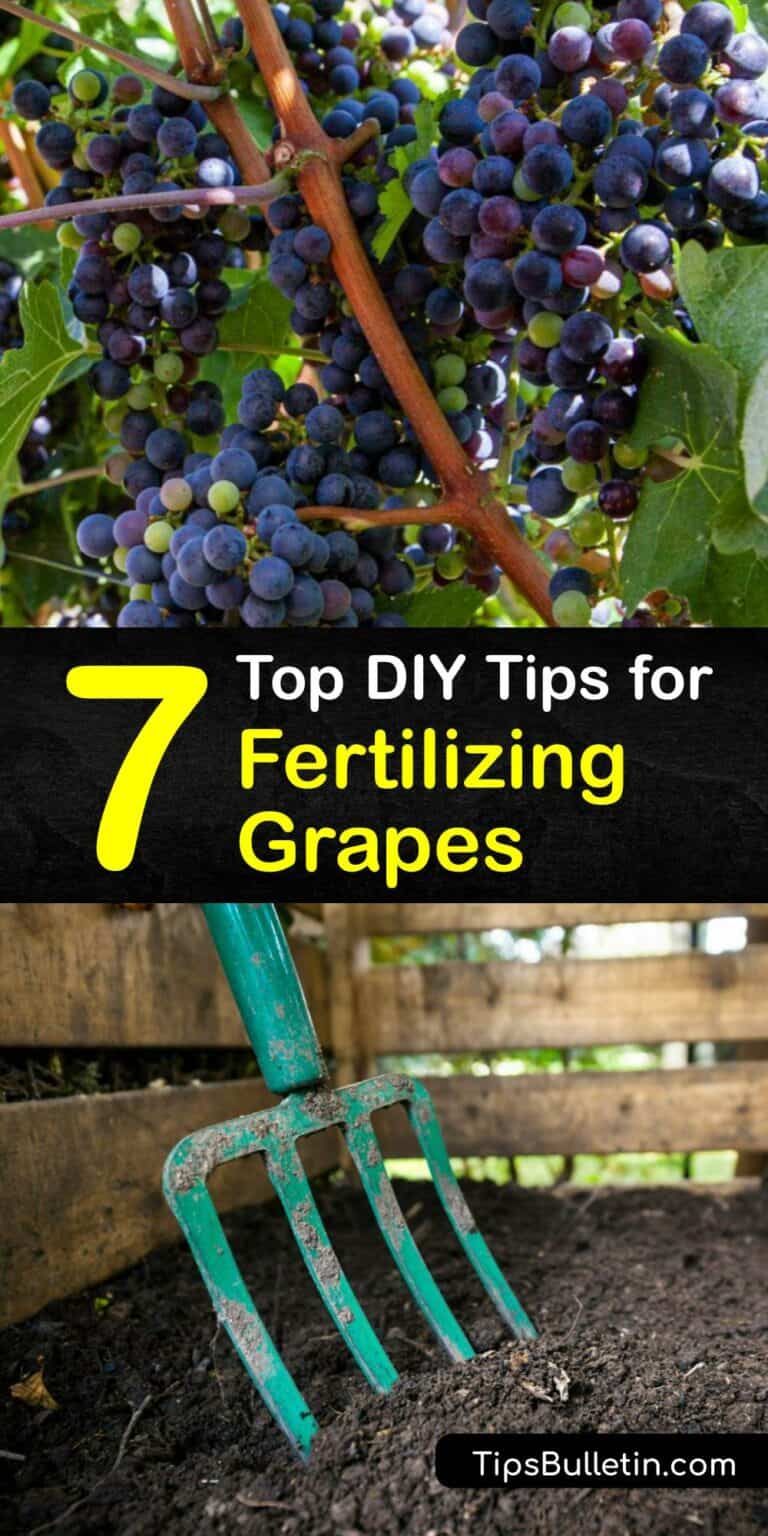
Feed Your Grapevines Easy Homemade Grape Fertilizers
Fertilizing Grape Vines. Fertilizing is an excellent way to replenish the natural nutrients in your plant's soil. We recommend using Stark® Tre-Pep® fertilizer for your grapes, applied 2-3 inches deep and 10-12 inches away from the plant. A second and third application may be made at the same rate after six and twelve weeks of growth.

The Best Fertilizer for Grapes Our Top 5 Choices Minneopa Orchards
In general, grape vines are not heavy feeders and do not need much fertilizer after they are well-established. Too much fertilizer can stimulate wood and leaf growth rather than fruit production. Moderate amounts of fertilizer during the first and second years after planting will help stimulate young plants to size up for earlier fruit production.
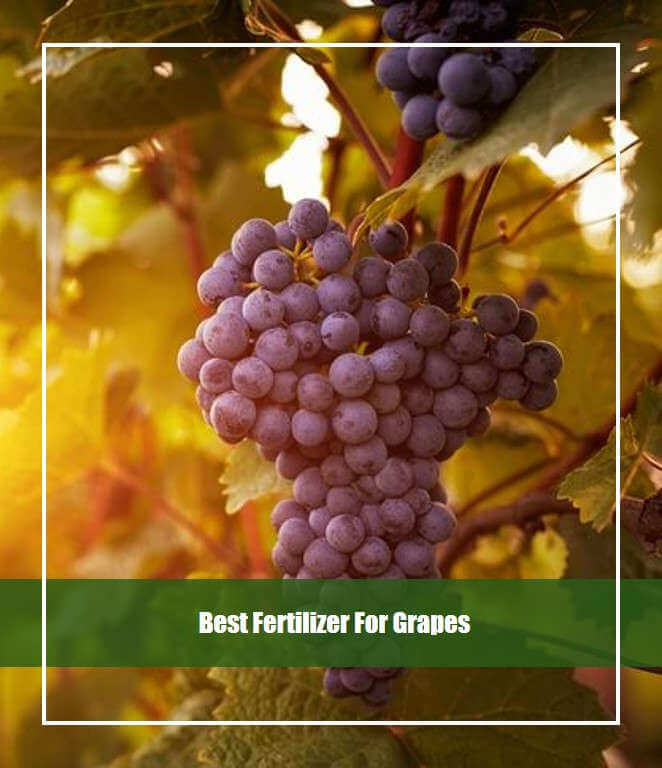
10 Best Fertilizer For Grapes 2022 [Reviews & Guide]
Dr. Earth Life All Purpose Fertilizer has a 5-5-5 blend, meaning the fertilizer provides 5% nitrogen, 5% phosphorus, and 5% potassium. If you have average, healthy soil, a balance of nitrogen, phosphorus, and potassium gives your grapes a boost of balanced nutrients to grow strong plants with healthy fruit.

DCM GRAPE FERTILIZER NPK 635+BACILLUS B2B
Grapes usually require very little nitrogen fertilizer. Getting a soil test is the best way to determine accurately the amount of fertilizer to apply to your grapes. Ideally this would be done before the soil is prepared for planting. In lieu of that, you will find that general recommendations vary somewhat depending upon the source.
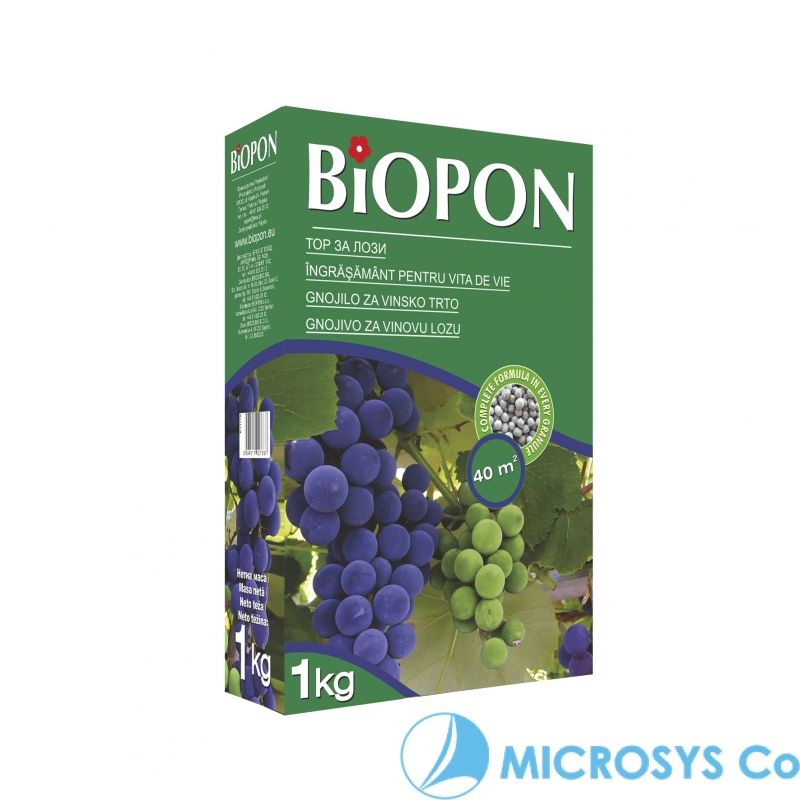
Fertilizers and grass seed mixtures, BIOPON grapevine fertilizer Microsys Co Ltd.
Mix Epsom salt with water for a magnesium-boosting liquid feed. To make the coffee ground fertilizer, steep 1 cup of used coffee grounds in 2 1/2 gallons of warm water overnight, strain it in the morning and use it as a foliar spray or soil drench. For weed tea, submerge 1/2 pound of pulled weeds in 32 oz of warm water in a bucket for four weeks.